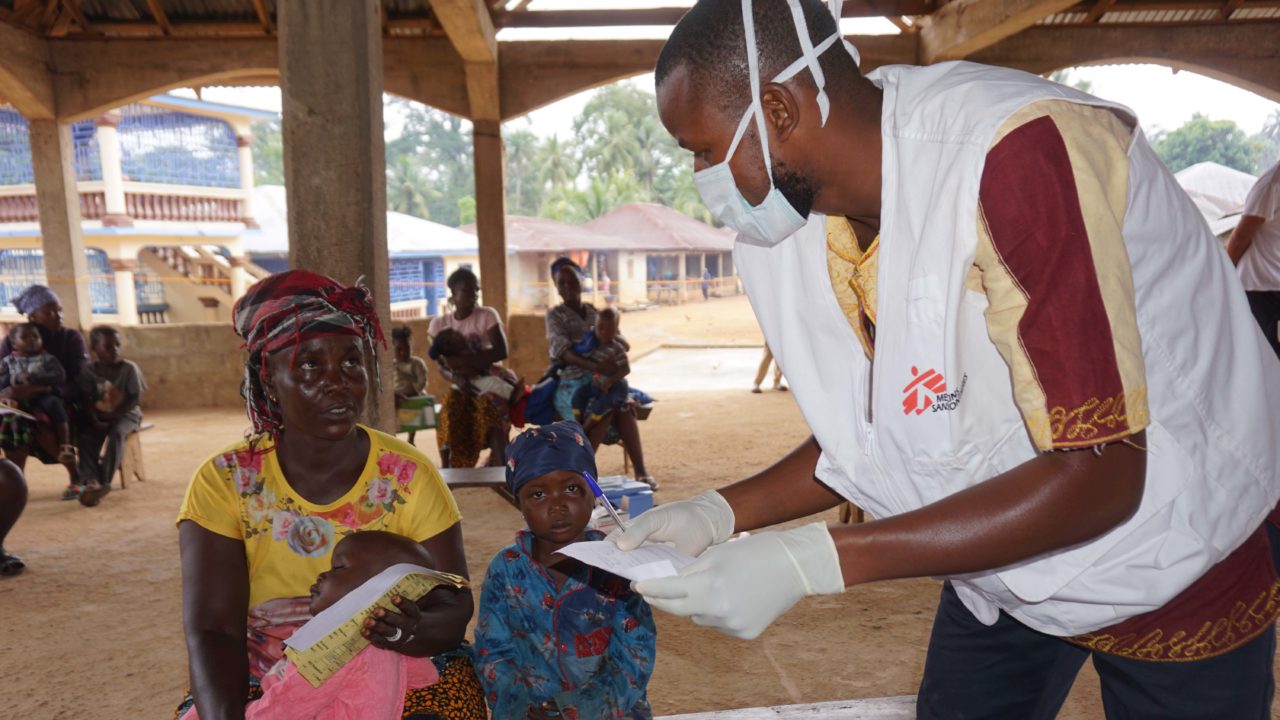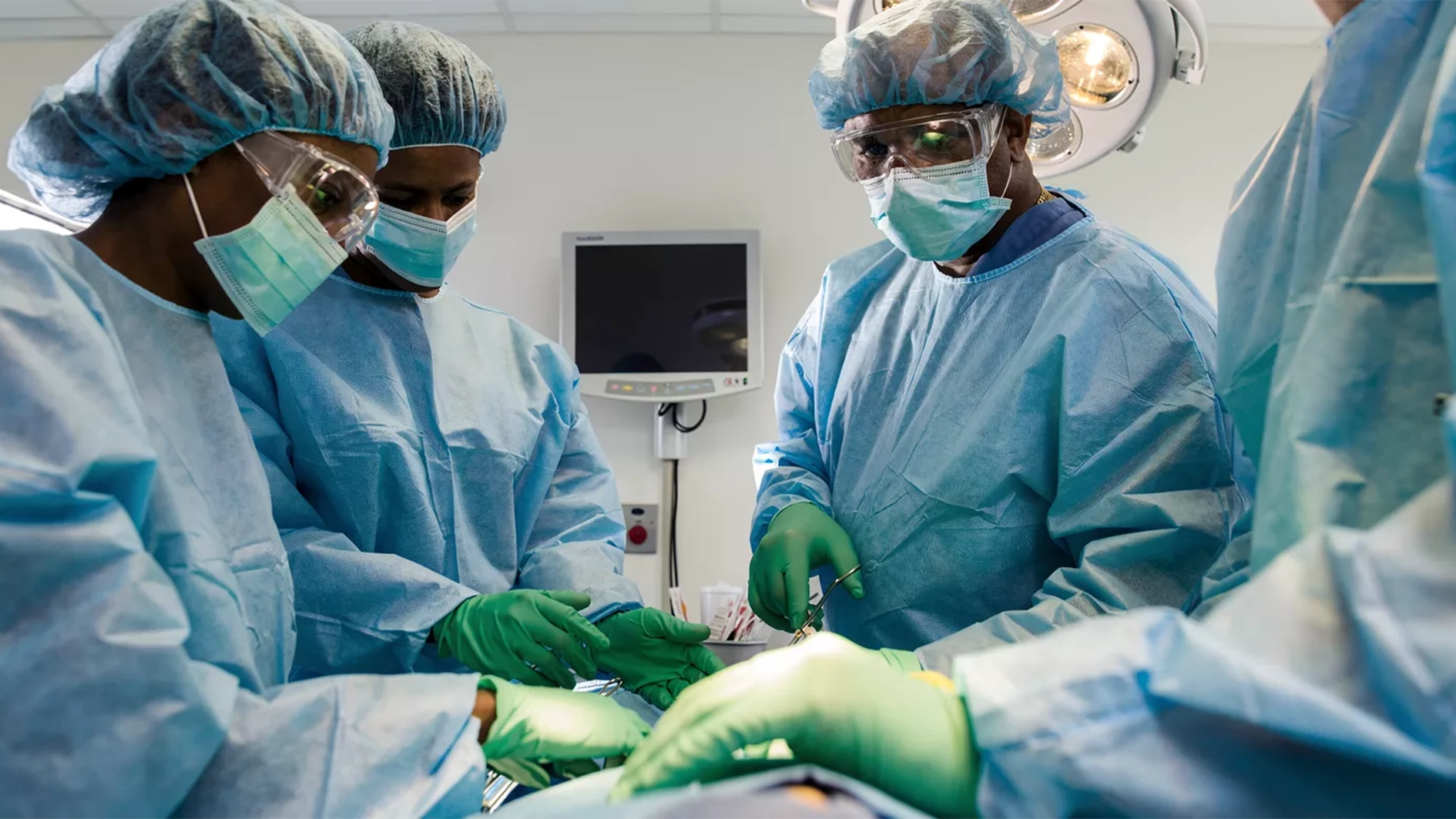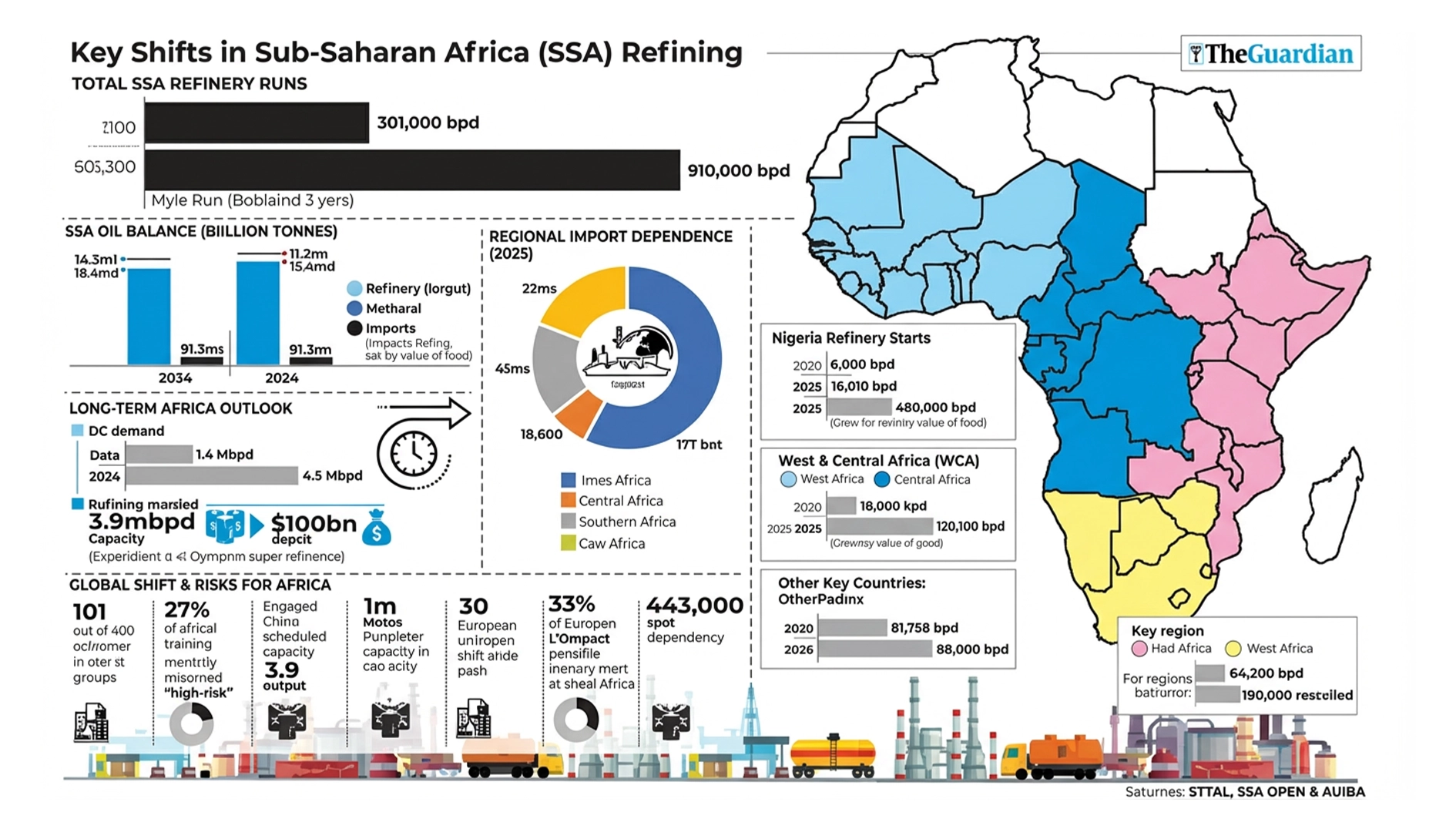
• Spike Driven By Public Fatigue With Key Health Measures — Experts
• Hospital Admissions Increase Rapidly
The confirmation of the highly transmissible and deadly Delta variant of COVID-19 in Lagos and Oyo States, last Monday, and spike in pandemic-induced deaths in Africa, has heightened concerns of resurgence of infections in the country.
Experts, who spoke to The Guardian, yesterday, said the surge in new infections and deaths was driven by public fatigue with key health measures and increased spread of variants.
They also warned that the situation has led to rapid increase in hospital admissions even as countries face shortages in oxygen and intensive care beds.
This is coming at a time most Nigerians think they have finally overcome COVID-19 threats and virtually thrown every form of caution to the wind.
Also, despite the progress made so far by the Federal Government through the Nigeria Centre for Disease Control (NCDC), there have been speculations on the expected third wave of COVID-19.
There are also concerns over shortage of COVID-19 vaccines. The country is yet to get another batch of vaccines since March. It is feared that the country may not get the expected batch of vaccines until September.
Also, less than one per cent of Nigerians have received two doses of AstraZeneca vaccines and less than three per cent of the population has received the first dose. This means that more than 97 per cent of Nigerians are unvaccinated with COVID-19 jab.
The situation has raised several questions: Is there a third wave of COVID-19 in Nigeria? Should Nigerians be worried about the confirmation of the Delta variant in Lagos and Oyo states? Does the AstraZeneca vaccines that some ‘three’ million Nigerians have received protect against the Delta variant of COVID-19? What is the Expert Review Committee doing to contain the situation? What is the Federal Government and people of Nigeria expected to do to avert it?
Chairman, Expert Review Committee on COVID-19, Prof. Oyewale Tomori, told The Guardian: “A third wave is a high possibility. We see the number of lab positive cases climbing and positivity rate rising. With the reported detection of the Delta variant in Nigeria, and the near abandonment of non-pharmaceutical interventions by most Nigerians, I believe we are getting set for a third wave. When it comes, it is likely to be more severe than the second wave, just as the second was higher than the first wave. It is however hard to make any detailed projection, because the elusive Severe Acute Respiratory Syndrome Coronavirus type 2 (SARS-CoV-2) virus keeps surprising us.”
Tomori, who is also a virologist and pioneer Vice Chancellor of Redeemer’s University, said Nigerians have reasons to be concerned about the emergence of the Delta variant in the country. “Very much so…we certainly should be worried, but better prepared than wasting time in fruitless worries. I suspect we are going to detect more Delta variants,” he said.
Also, the World Health Organisation (WHO), yesterday, alerted that Africa has recorded a 43 per cent week-on-week rise in COVID-19 deaths, as hospital admissions increase rapidly and countries face shortages in oxygen and intensive care beds.
The WHO, in a statement released after a virtual press conference facilitated by APO Group, noted that fatalities increased to 6,273 in the week ending July 11, 2021, from 4,384 deaths in the previous week. Africa is now less than one per cent shy of the weekly peak reached in January when 6,294 deaths were recorded.
Namibia, South Africa, Tunisia, Uganda and Zambia accounted for 83 per cent of the new deaths recorded in the past week. The continent’s case fatality rate, which is the proportion of deaths among confirmed cases, currently stands at 2.6 per cent against the global average of 2.2 per cent.
Regional Director for Africa, WHO, Dr. Matshidiso Moeti, spoke during the virtual conference.
According to the statement, COVID-19 cases have risen for eight straight weeks, topping six million on July 13, 2021. Over the past month, Africa recorded an additional one million cases. The WHO said the surge is driven by public fatigue with key health measures and an increased spread of variants. To date, the Delta variant, which is currently the most transmissible of all variants, has been detected in 21 African countries, while the Alpha variant is in 35 countries and Beta in 30.
Moeti said: “Deaths have climbed steeply for the past five weeks. This is a clear warning sign that hospitals in the most impacted countries are reaching a breaking point.
“Under-resourced health systems in countries are facing dire shortages of the health workers, supplies, equipment and infrastructure needed to provide care to severely ill COVID-19 patients.”
According to the WHO, additional vaccines supplies expected in the coming weeks and months will help shore up the vaccination rates. Around 190 million extra COVID-19 vaccine doses will be needed to fully vaccinate 10 per cent of the Africa’s population by September 2021, with around 750 million more doses needed to fully vaccinate 30 per cent by the end of 2021.
But does the AstraZeneca vaccines protect against the Delta variant of COVID-19? Tomori responded: “Yes indeed; all vaccines protect against the Delta variant in varying degrees, but they are not as effective as they are against other known variants.”
On what is being done to contain the situation, Tomori said: “We do what we have always done, analyse global regional, national and local situations. Based on this analysis, we offer evidence-based advice, and the Minister accepts or rejects, also, based on other national considerations. There have been pieces of advice we gave that were either accepted or not implemented. Given the prevailing situation of COVID-19 in Nigeria, we will still offer the same advice.”
He added: “As I have repeated often, the responsibility for the control of COVID-19 is primarily that of the people, and not of the government. The society, the individual member of the society has a crucial and defining role in COVID-19 control. Government is just a facilitator. The spread, the transmission, the incubation and effect of COVID-19 in an individual are all issues for each individual.”
Tomori disagreed with the assertion that Nigeria has recorded success so far in the containment of COVID-19. “What success? Which disease has killed over 2,000 Nigerians over 18 months or led to the sickness of over 160,000? Where is the success? If you say because the number of our cases and deaths are lower than we expected/anticipated, or not as severe as the situation in other countries and that is called success, I beg to differ. The countries that can be said to be successful are those that did not lock down and had lower number of cases and deaths. On why we had lower figures of cases and deaths, despite our disdain for non-pharmaceutical interventions, it must be due to what the virus did not do, rather than what we did. What we did should have led to higher figures of cases and deaths,” Tomori said.
On the major challenges faced in confronting the virus, the virologist cited “insufficient testing; incoherence in government policies (federal does one thing and the states do something else); absence of public appreciation of the severity of the disease and a mutual distrust between government and the citizens. Add to all these the seeming lack of transparency and accountability on the funding of COVID-19 response activities.”
President, Nigerian Association of Resident Doctors (NARD), Dr. Uyilawa Okhuaihesuyi, said the pandemic, the world over, was indeed on the third phase.
“Only about few days ago we had our first few cases of the Delta variant and right now it is more virulent than the first and second phases. So, emphatically the answer is yes; Nigeria is currently in the third phase of the COVID 19 and in this third phase the culprit is the Delta (B.1.617.2) variant,” he said.
Okhuaihesuyi said Nigerians should be worried about the rate of transmission, which is more than 60 per cent as compared to other variants we have had in the past.
“The Nigerian Association of Resident Doctors has also lost one of her best hands to this deadly COVID-19 in the last five days. So, yes we are worried with he lacklustre behaviour of our people towards the simple measures to ward off the disease,” he added.
Medical Director, Medical Art Centre (MART) Maryland, Ikeja, Lagos, Prof. Oladapo Ashiru, commended the Expert Review Committee and the Federal Government “for the great work done so far in containing COVID-19 in Nigeria.”
But Ashiru, who is also a joint pioneer of In Vitro Fertilisation (IVF) in Nigeria and President, International Fertility Society (IFS), added: “We must as a people and with the leadership from our government apply brake and pull back from the various relaxations. We must ensure wearing of mask and social distancing. Functions must use only 50 per cent capacity for a start.”
Ashiru said it was very worrisome the way the Delta variant has been spreading.
“By June 1, it had spread to 62 countries. Two weeks later, it had been found in 80 countries and by July 4, the number had risen to 104. Kazakhstan, Laos, Latvia, Lebanon, Namibia, Oman and Sierra Leone are the latest countries to confirm the presence of the Delta variant. Now the variant has been reported in Lagos and Oyo states. The public must be very concerned and take personal protection using mask and social distancing,” he said.
On what the Expert Review Committee was doing to contain the situation, Ashiru said: “Our Academy of Medicine Specialties have a Rapid Response initiative that has been assisting in preventing the spread. Some members of the group are also serving in the various task force at the Federal and State levels.”
He said the Chairman of the group, Prof. Obinna Onwujekwe, who is also on the National Task Force, has released some advisory on the Delta variant, which the Academy endorsed.
“Taking into consideration the continued COVID-19 pandemic in Nigeria especially the current finding that the very infective Delta variant of the virus in Nigeria, it is noted that the Delta variant is currently wreaking havoc in many African, Asian and Western countries. The variant has overwhelmed the health systems in countries such as South Africa.
The Delta variant has been reported to be responsible for the current emerging third wave of the COVID-19 pandemic in Nigeria. Note has also been taken of the relaxed attitude that Nigerians currently have to the pandemic and the very low levels of vaccine coverage,” Ashiru said.
He said the Academy of Medical Specialties, having examined the available evidence and the need for the country to adequately prepare to contain the third wave of COVID-19, recommended mass screening of secondary and tertiary students so as to quickly isolate and manage all positive cases; ramping up of Risk Communication strategies including using local languages and through innovative channels such as religious organisations and markets; ensuring that each state has adequate stockpiles of oxygen in view of the debilitating effects of the Delta variant with oxygen dependent signs; and establishing strong grassroots based surveillance and monitoring systems for rapid detection of the virus.
Ashiru said government should make concerted efforts to buy the Johnson and Johnson vaccine and proceed to mass vaccination, noting that the country would not cope with the imminent danger if it continues to wait for the free COVAX.
A public health physician and Executive Secretary, Enugu State Agency for the Control of AIDS (ENSACA), Dr. Chinedu Arthur Idoko, said the detection of the Delta variant in the country should, “re-awaken our consciousness to the reality of and the still very presence of the COVID-19 virus in our midst.”
He stressed that there was need not to relax wearing of face masks, social/ physical distancing, frequent hand washing with soap and water and all the other preventive and health promotive measures against the virus.
Idoko said Nigeria has recorded some successes in the containment of the pandemic because the country was effectively sensitised to COVID-19 and there was appreciable buy-in by the Nigerian people to the safety measures and protocols, noting however that caution was declining now.
The public health physician said the various conspiracy theories have in one way or the other slowed down caution and adherence to safety protocols as well as seriously affected vaccination against the virus.
Also, a virologist and vaccinologist, Dr. Simon Agwale, told The Guardian that viruses constantly change to adapt and survive, and variants emerge as a result.
“The Delta variant, which was first identified in India has been shown to spread more easily than other variants that have so far been identified. Researchers have said that the Delta variant is at least 50 per cent more contagious than the Alpha variant, which was first identified in the UK and the original coronavirus first identified in China.
“Yes the current COVID-19 vaccines are effective against the Delta variant, though at a slightly reduced level than against other variants of concern. A study in the UK showed that the AstraZeneca vaccine, which is currently being used in the country, was about 60 per cent effective against the disease and 93 per cent effective against hospitalisation. The same study showed that Pfizer was 33 per cent effective after one dose and 88 per cent effective after two, while AstraZeneca was 33 per cent after one dose and 60 per cent after two.”
Agwale, who is also the Chief Executive of Innovative Vaccines Limited, Abuja, and leads Africa’s COVID-19 Vaccine Manufacturing Initiative, added: “Since we already know that current vaccines work, all efforts should be channeled towards making sure that we have enough vaccines to enable us achieve herd immunity. Focus should also be on local vaccine production, so that it will be easier to update vaccines based on our locally circulating variants.”






